Mandy Barker Union of Concerned Photographers
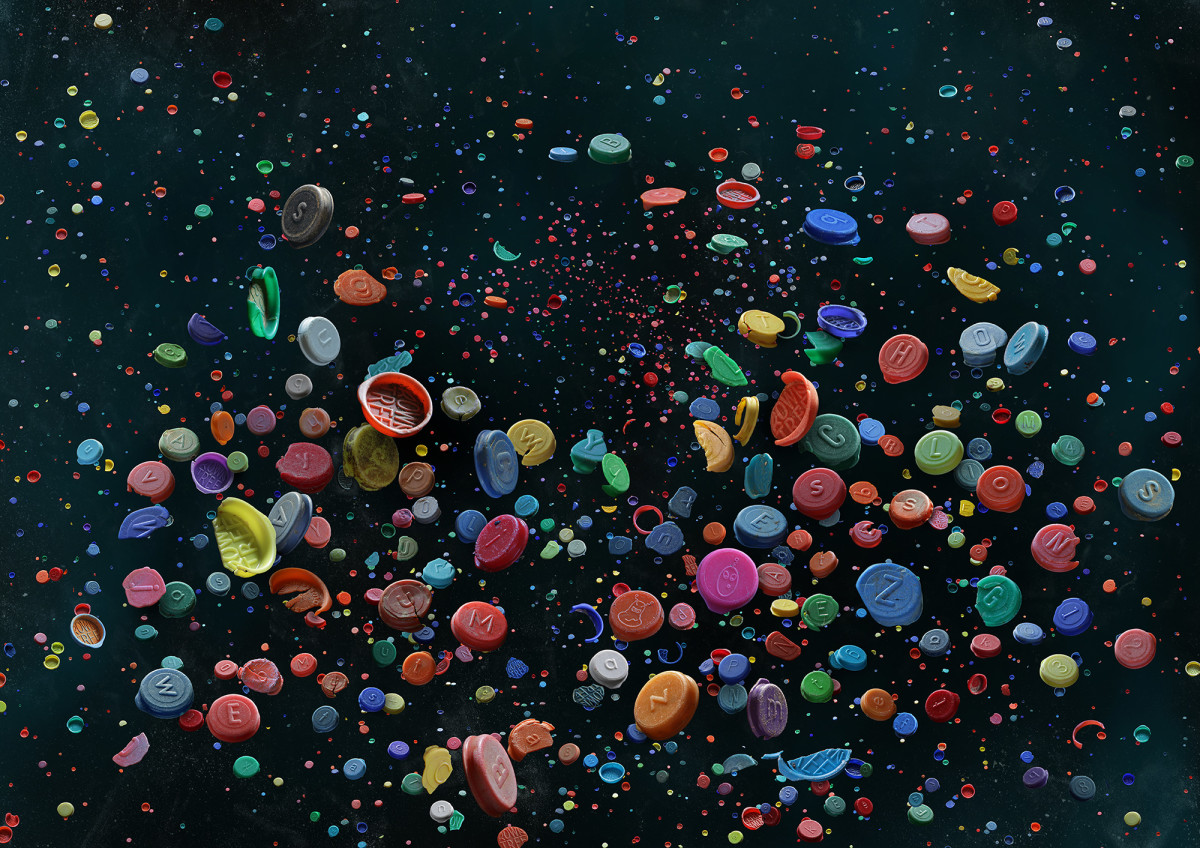
wepresent_It’s almost impossible to get your head around the amount of plastic clogging up our oceans. British photographer Mandy Barker is on a mission to bring us face-to-face with this shameful issue and the effects it’s having on our planet. Mandy introduces us to her powerful images and the distressing messages hidden within them.
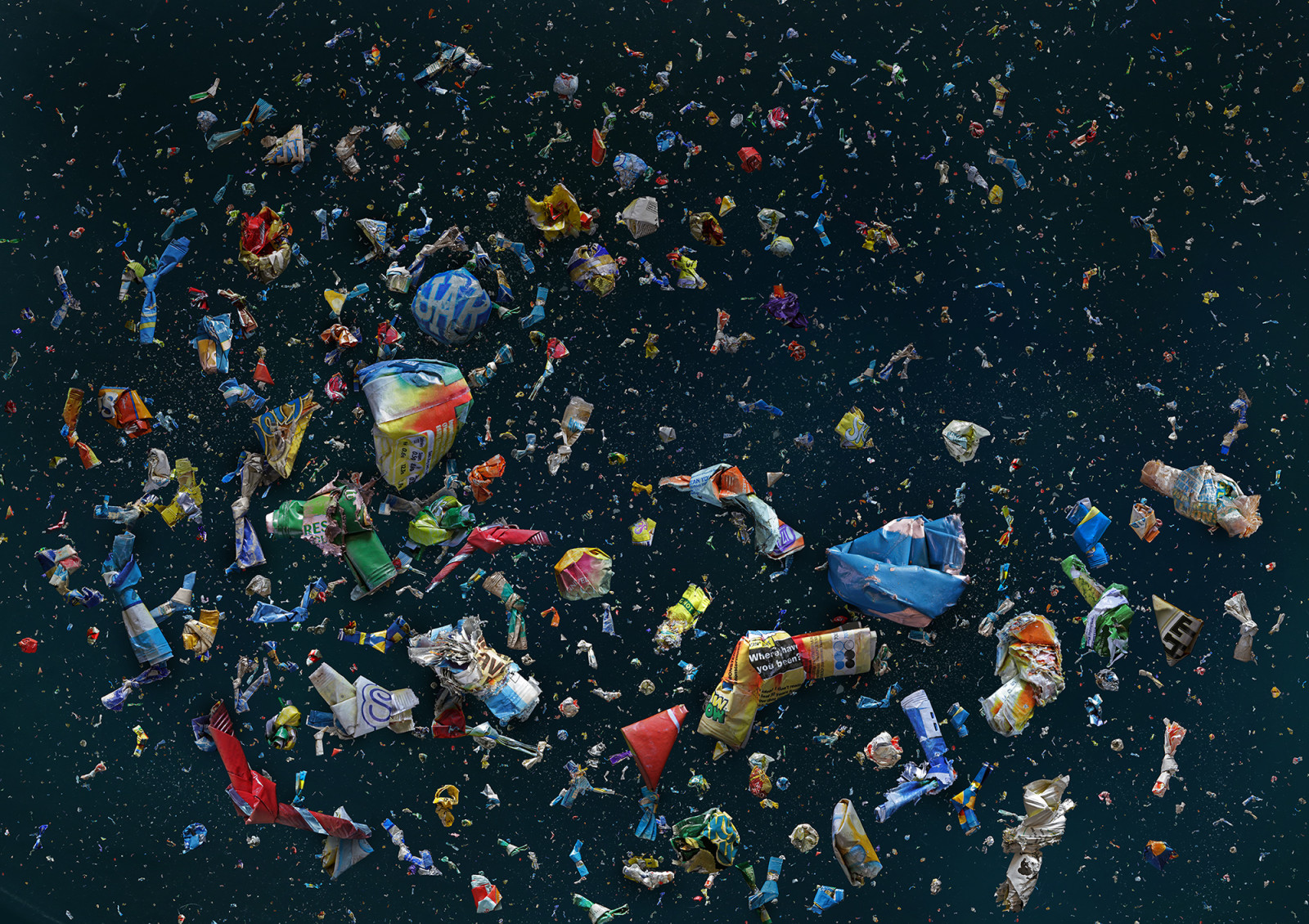
Crisp packets collected from around the British Isles - England, Ireland, Scotland & Wales.
During my time collecting marine debris, I’ve come across crisp packets in almost every form. Knotted, folded, tightly wound into balls — each technique producing a solid piece of plastic suspended in our oceans.
Alongside the nibble marks left by confused marine life, the packets I’ve photographed have messages hidden in their folds, displaying phrases like “Where have you been? Ideal I don’t really last 30 years.” Ironically, this collection of plastic origami will be around for a whole lot longer than 30 years.
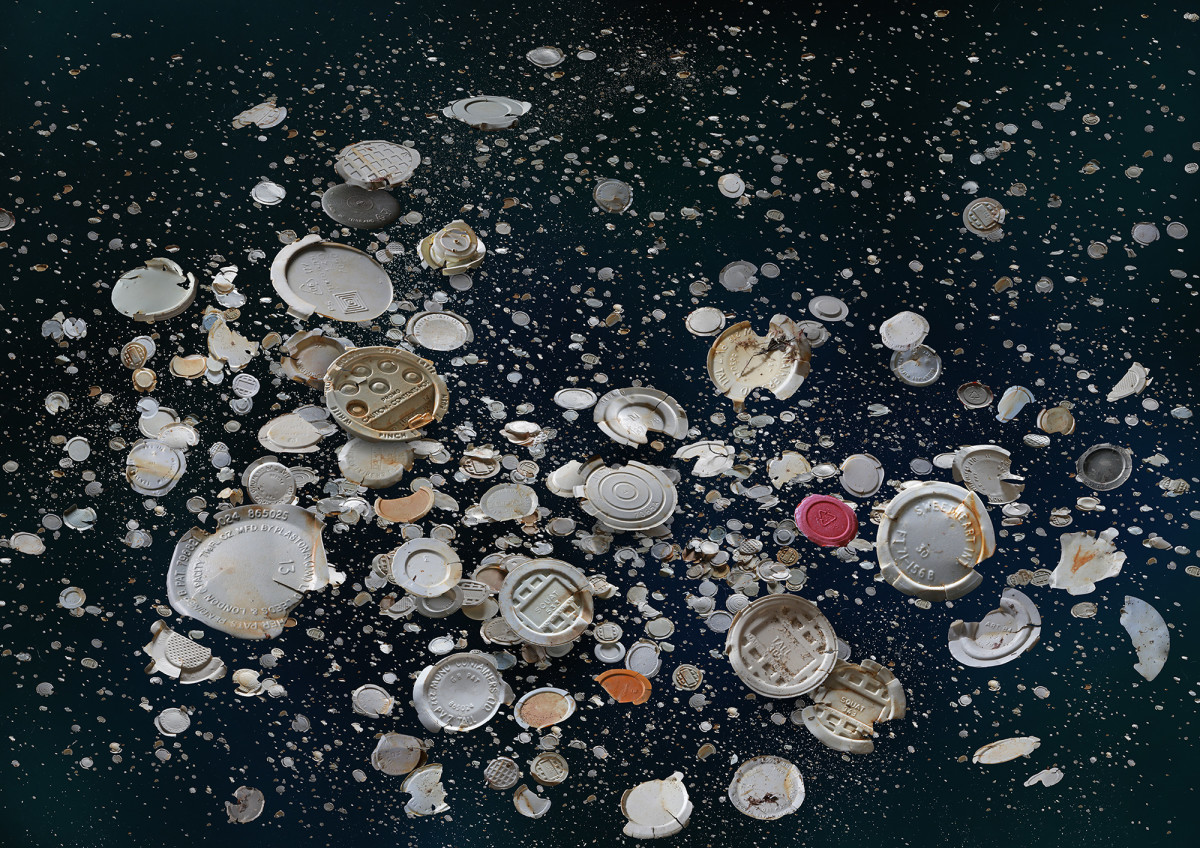
Plastic cups recovered mainly from the UK, but with some from Europe and the US.
Single-use plastic cups often serve their purpose for mere minutes before finding their way into the world’s oceans — where they can remain for hundreds of years. While the sides of the cups might easily break apart, the strong structure of the base holds together, creating a harmful swarm of floating discs.
The bases of the cups are often embossed or branded, one that stands out in this image is "SWEETHEART INT." I deliberately placed this next to the (ironically) submerged recycling logo, the red color of which represents the heart of the marine plastic issue itself.
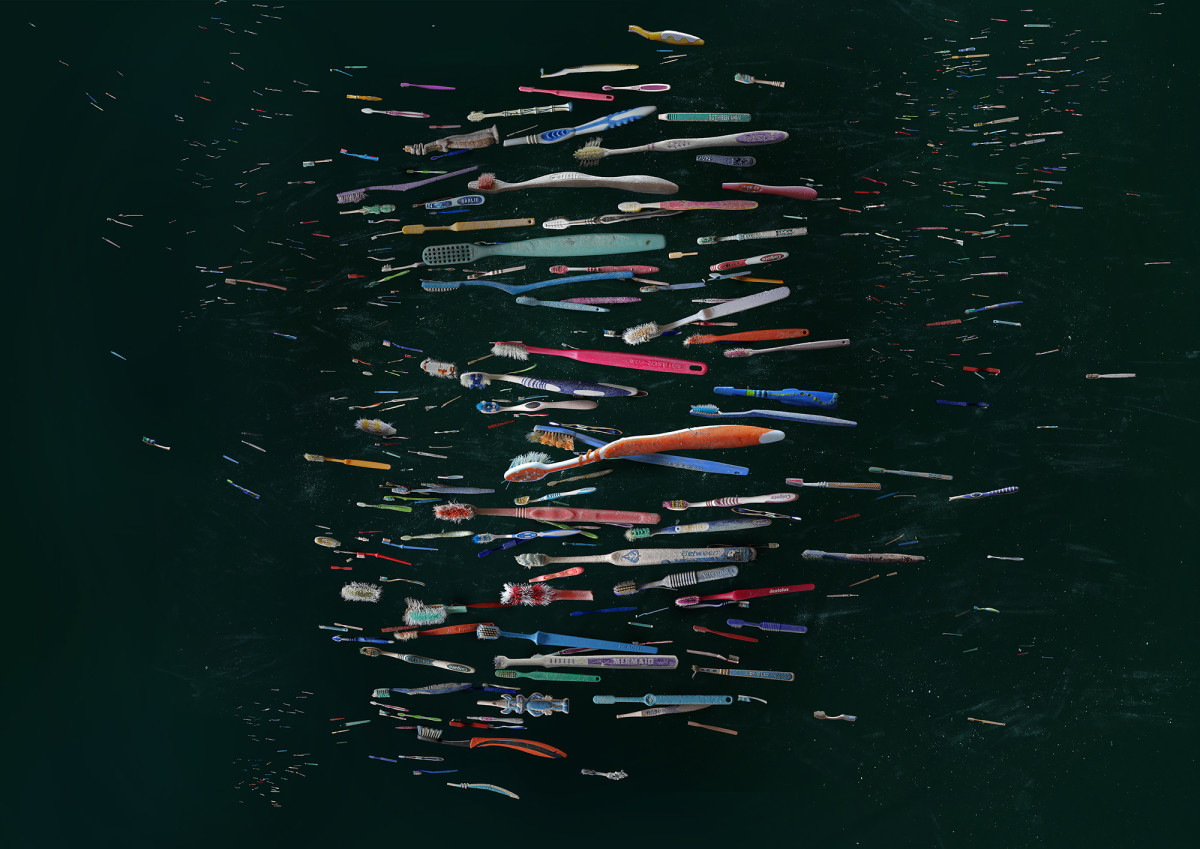
Toothbrushes collected from around the world – includes collections from Hawaii, Cuba, Hong Kong and Lanzarote. A global representation of the US, the Caribbean, Asia and Europe.
Toothbrushes like these are often found in the stomachs of dead albatross chicks and, like most of the plastic polluting our oceans, this collection bears its own bittersweet message. The word MERMAID immediately caught my attention, followed by REACH — a mermaid wouldn’t have to reach far for a toothbrush now that the sea is littered with them.
I also noticed the words BETWEEN and WISDOM; two words which perhaps reflect our reckless attitude towards plastic and its impact on our planet.
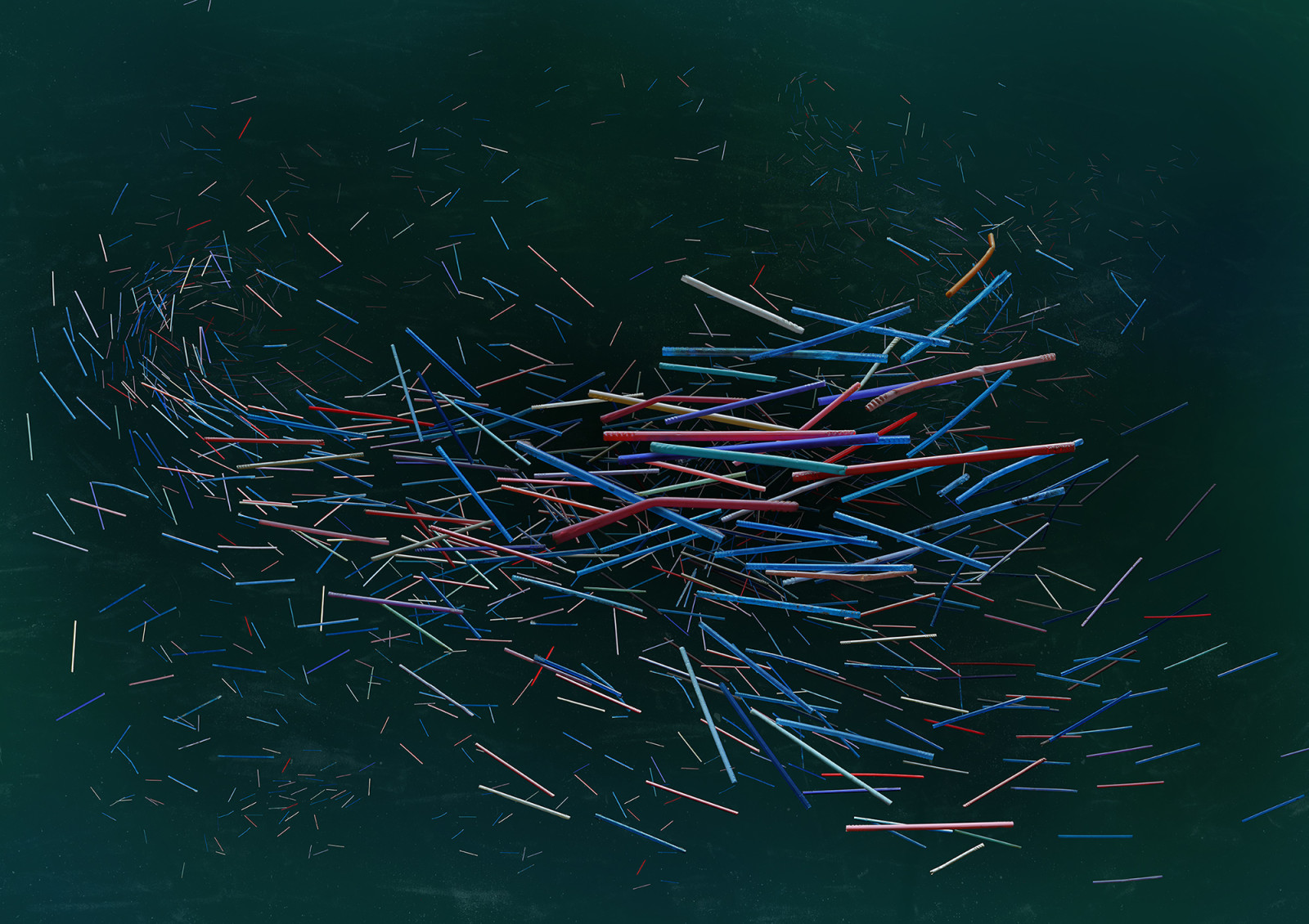
Cotton buds recovered from around the UK.
More single-use plastic waste, this time taking the shape of plastic cotton buds. Useful for a few seconds before being flushed down the toilet. From here they begin their journey into the sea, clogging up sewers, littering beaches and killing marine life on their way.
Thankfully the plastic stems are now banned and are being replaced with rolled paper alternatives. But, in reality they’ll be washing up on beaches around the world for hundreds of years to come.
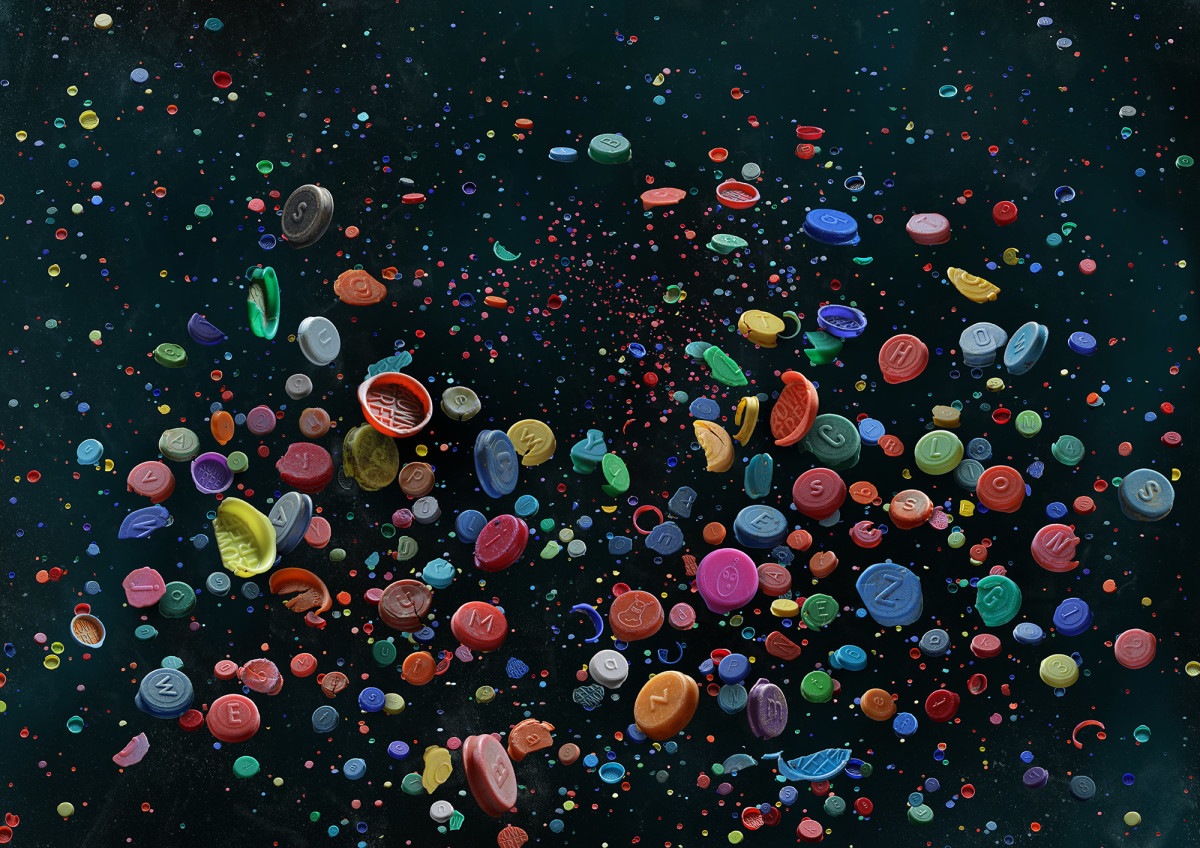
Smartie lids recovered from beaches around the UK.
In 2005 the plastic caps of Smarties tubes were replaced with a cardboard lid built into the packaging itself. Yet, 13 years later, these plastic caps continue to wash up on beaches around the UK and beyond. The caps are recognizable by a letter of the alphabet embossed onto the surface, alongside special faces and motifs used to drive the candy’s sales. In just one afternoon, I was able to collect almost a whole alphabet (except for five letters) from a nature reserve on the east coast of England. Some of the lids used in this image are more than 40 years old, and if you look carefully they spell out a larger message from the world’s oceans.
